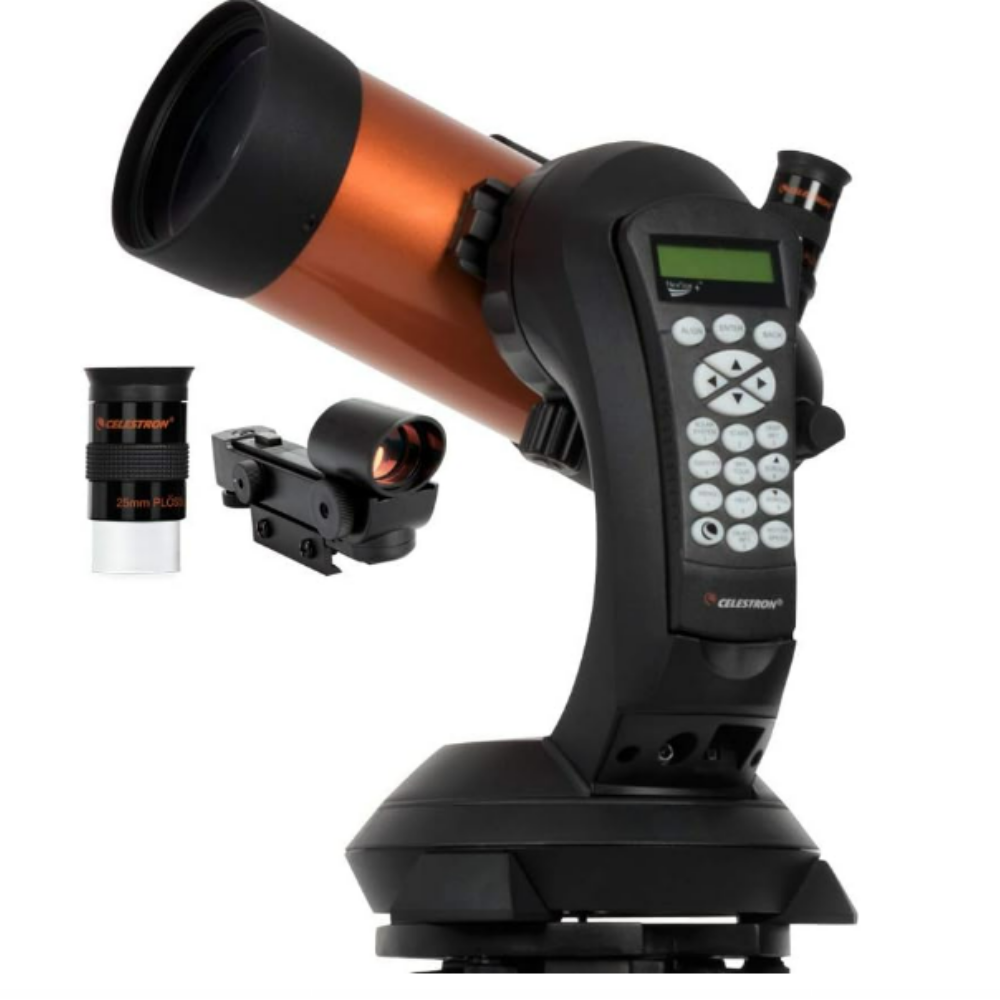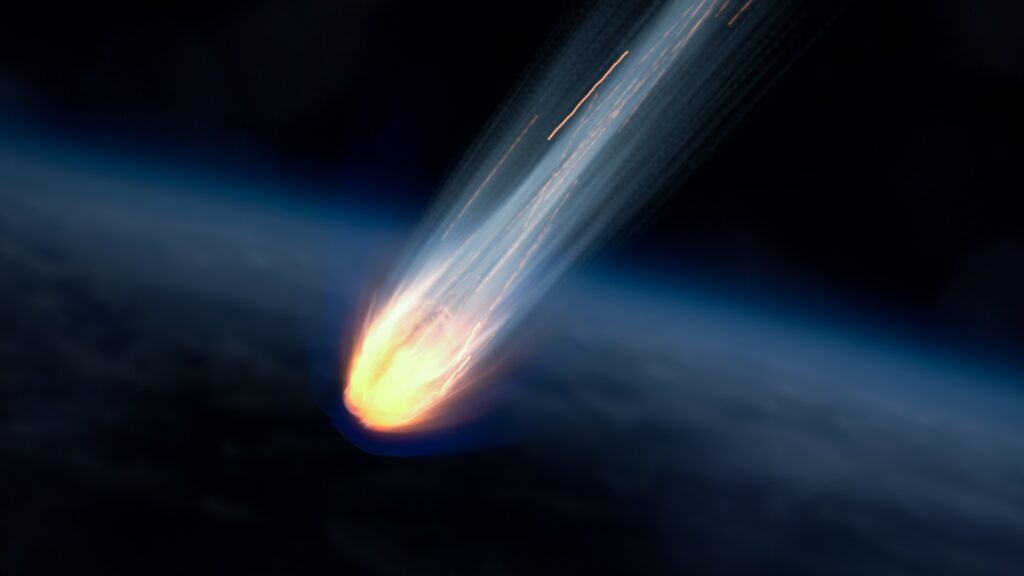What are the greatest spaceships of science fiction? So many discussions of ships in science fiction movies and tv fall into the same tired debates. Who goes faster, the Star Wars’s Millennium Falcon or Star Trek’s the USS Enterprise? How big of a planet would the Death Star blow up — and how much would that ship cost, anyway? This article takes things a step further.
Here we explore the most creative and coolest ships of science fiction, in the age where everyone from Jeff Bezos to Elon Musk is building a spacecraft. Of course, you’ll see some familiar names on here (no list would be complete without them!), but we hope there will be at least a couple of surprises. Enjoy!
NEXT: A luxurious vessel
UNSC Infinity (‘Halo’ franchise)

The beautiful Infinity base in the Halo series of videogames is not only pretty to look at, but also a useful vessel for getting places. The ceremonial flagship for the United Nations Space Command, the Infinity is equipped with sublight and translight power, and able to avoid enemy attacks with the use of energy shields, according to Halopedia. The crew on board has the latest in entertainment, including a biosphere (said to rival natural parks on Earth) and a bar, called the Full Moon. To communicate with allies across long distances, Infinity even has superluminal communications capabilities. Now, if only there wasn’t a war to fight, we could really enjoy a nice vacation on this ship.
NEXT: A machine with hidden depths
Heighliner (Dune 2021)

Frank Herbert’s 1965 novel Dune, won the 1965 Hugo award, according to The Guardian and was previously filmed by David Lynch in 1984. Of the numerous spacecraft featured in the book, and it’s various sequels, perhaps the most famous are the Heighliner spacecraft, operated by the Spacing Guild. These vast ships are used to ‘fold’ space, allowing for instant travel across vast distances. They were depicted in the recent 2021 film adaptation, when the House of Atreides travels to the planet of Arrakis.
TARDIS (‘Doctor Who’ 1963-)

Since it’s first broadcast in 1963, Doctor Who has become something of a British institution. From long scarves to Daleks, Cybermen to Sea Devils, and even the villainous Kandyman (an evil robot constructed from sweets, according to Television Heavan), it’s not a show that’s ever been short on imagination. As such it’s no surprise that the titular timelords ship appears less like a futuristic vessell and more like a 1960’s Police Box, but once you get inside the magic really starts to happen. At first glance, the TARDIS appears like a mere time-travel machine, whisking characters back to chat with people like author Mary Shelley, inventor Nicholas Tesla and nurse Mary Seacole. But it’s much more innovative than that. It travel through time, but also space, taking the characters to adventures on space stations or planets such as Skaro, the home of the Daleks. First-time visitors are always surprised at how big the interior is — “It’s bigger on the inside”, is the famous line — as well as the ability of the TARDIS to blend into its surroundings. Not only this, but the TARDIS itself is a living being which withstand gunfire, falling from great heights or even entering a planet’s atmosphere. Although there are ways to damage a TARDIS, one of the only sure fire methods is to have one TARDIS materialize around another, a process catchily named a “Time Ram”.
Related: Doctor Who villains: ranked
NEXT: A plucky warrior
Battlestar Galactica (Battlestar Galactica, 2004-09)

When the 1978 TV series Battlestar Galactica was given a dark and gritty reboot in 2004, it was noted for it’s amazing spaceship designs. In a TV series filled with amazing ships, it’s hard to pick just one. But there’s something special about the titular Battlestar Galactica, the ship which flees a relentless attack by the monstorous Cylons and journey’s to the fabled 13th Earth colony, according to Galactica.fandom.com. Sure, it’s not a networked ship and yes, it takes some heavy damage against the Cylons when attacked. But it’s adaptable and flexible; during one memorable season 2 episode, Flight of the Pheonix, the ship’s computers are effected by a Cylon virus, the ship is used to return the favour . And Battlestar manages to stay one step ahead of the Cylons in many cases, safely using its faster-than-light drive to escape.
Related: Here’s an exclusive look at ‘Battlestar Galactica: Designing Spaceships’ from Hero Collector
NEXT: A technological marvel
Elysium ship (2013)

Neil Blomkamp’s 2013 sci-fi thriller Elysium is fundamentally a fairly depressing story, its titular ship is both a marvel of technology and design. This is a massive space station that actually looks like another world. Set in 2154, when the earth is ravaged by disease and pollution, the upper classes have retreated to a vast space station, leaving the poor below, according to Roger Ebert. Sadly, only the ultra-rich get to live and party here, but for what it’s worth, Elysium looks a lot like a paradise. Glimpses of the ship reveal a world of verdant green — natural enough to make you feel relaxed, but close enough to civilization to whisk you to a Med-Bay to cure your worst illnesses, the focus of the films protagonist Max. The best part is what happens once you are registered as an Elysium citizen. The space station is automatically programmed to deploy rescue ships to pick you up and bring you back home, even if you’re stuck on the stinking hell that is Earth in this film.
NEXT: A deadly lurker
Reapers (‘Mass Effect’ franchise)

Easily one of the best sci-fi games, The Mass Effect franchise features characters valiantly trying to protect our home galaxy from baddie aliens; in a later game, a new fight begins in the Andromeda galaxy. For ship innovativeness, it’s hard to beat the villain Reapers. They blend biology and machine, lurking in the space between galaxy for up to 50,000 years, according to the Mass Effect wiki. While they’re mainly portrayed as intruder chasers, we can’t forget how smart these Reapers are. They created the mass relay network that all ships use to jump locations. They also made the Citadel, a massive space station.
NEXT: A storied classic
USS Enterprise line (‘Star Trek’ franchise)

Perhaps no Sci-fi spaceships are as afamous as the Star Trek franchises U.S.S Enterprise. Of course, we could quibble about whether the NCC-1701-A (commanded by William Shatner’s Captain kirk and debuting in the 1986 movie The Voyage Home, according to Trekipedia) or NCC-1701-D (the main ship in The Next Generation and it’s associated movies, according to Star Trek.com) was the better U.S.S. Enterprise, but keep in mind that the entire ship line has an impressive history. If we take the movie and television franchises as a whole, the U.S.S. Enterprise not only performs, but outperforms in most situations. It regularly operates well beyond safe speed limits (to the chagrin of Scotty), some versions have the ability to split in two independent parts, and it can deal with extreme environments (like burning up in Earth’s atmosphere or lurking under the ocean.) Some of the more advanced versions can even cloak, taking away the element of surprise that Romulans and Vulcans previously enjoyed.
NEXT: An adaptable hauler
Millennium Falcon (“Star Wars” franchise)

Coming in close behind the U.S.S. Enterprise — sorry, “Star Wars” fans — is Han Solo’s amazing Millennium Falcon. It’s a bit of a nice contrast to the sleek Enterprise, because there’s no huge crew running this ship; instead, it’s a bunch of ragtag heroes who need to use whatever they have on hand to keep this ship going. The Falcon, despite the rundown nature of the vessel, is surprisingly adept and adaptable. Yes, it’s got fast travel capabilities (with Solo famously stating that: the ship “made the Kessel Run in less than twelve parsecs”), but there’s more to it than that. The ship is able to fit into small cracks, to engage in epic fights on- and off-planet, and even survive in weird environments like an alien mouth. Like any jet fighter worth its name, it also has great weaponry on board to help fight the evil Empire.
Related: Building the Fastest Hunk of Bricks in the Galaxy (Video)
NEXT: A light in the black
Serenity (‘Firefly’ franchise)

Joss Whedon’s Firefly, famously canceled after just one season, was noted for it’s grim and gritty ‘space western’ approach, was supposedly inspired by the John Wayne film Stagecoach, according to the Hollywood Reporter. As such the featured spacecraft, the serenity, is a bit of bucket of bolts – built for practically not comfort. Sure, Serenity doesn’t have the trappings of more elegant spaceships. There’s no warp drive or fast travel butthere are very clearly toilets on board, counteracting the old “Star Trek” myth about their starships. It looks a bit like a warehouse inside, and it always seems to be breaking down. But fans don’t gorram care, because Serenity is built to last. The ship’s modest appearance means it’s easy to miss when the crew members take on their main job of scrapping other starships for supplies. If it takes a bad hit, usually it can be fixed with scavenged parts. And above all, it just works. No high-fuss mechanical work needed here; just put a capable mechanic on the crew, and Serenity will give you all you need.
NEXT: An unknowable presence
Alien ships in ‘Arrival’ (2016)

“Arrival” is one of those films where you would love to know much more about the aliens, the beautifully named “Heptapods” who communicate with special symbols representing full sentences or concepts. One of the questions we barely get answered is how their amazing ships work. The ships suddenly arrive on Earth and appear to be synchronized across locations, instantly reacting to events that just one of the ships is privy to. They hover in mid-air with no apparent propulsion system, and they appear to use some sort of warp drive that involves visual dissolution on-site. Inside these ship entrances, gravity is a bit uncertain; the interior is filled with some sort of atmosphere that may alter how humans experience the environment. These ships, in a word, are beautiful — but we wish we knew more about how they worked.
NEXT: A flexible speedster
The Endurance (‘Interstellar’ 2014)

Christopher Nolan’s sci-fi blockbuster, Interstellar, followed a group of astronauts who travel through a wormhole near Saturn in search of a new home. Obviously any old ship wouldn’t be suitable for such a journey and it is the job of the Endurance to make sure they get through in one piece. According to the Interstellar Wiki, the Endurance was designed to be self sufficient for several decades as well as have the ability to prolong the life of its crew. The ship is modular, comprising of a number of box shaped compartments, connected and forming the shape of a ring.
Spaceball One (‘Spaceballs,’ 1987)

We love Spaceball One for showing all the plot holes that other spaceships missed. The ship has a number of speeds to choose from: Light Speed, Ridiculous Speed, Ludicrous Speed, Plaid Speed. As the crew quickly shows in the film, if you hit a speed that is too fast, you’ll easily overshoot your target. It also has an unusual cloaking mechanism, demonstrating there are other uses to a costume besides hiding; Spaceball One can change into huge robotic maid with a vacuum cleaner, capable of sucking air off of planets.
NEXT: An oddly breakable behemoth


